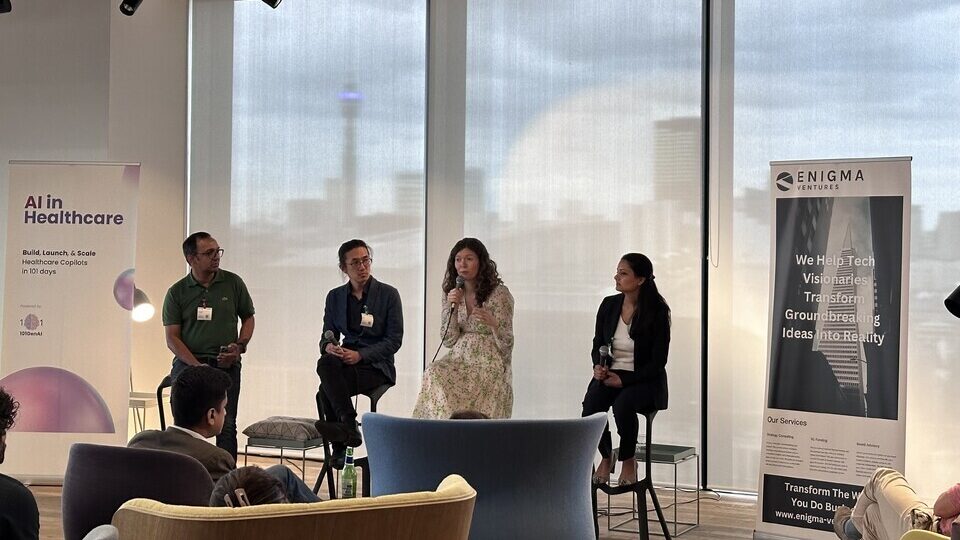
Janardan Prasad: Increasing Healthcare Adoption in the UK with GenAI
Janardan Prasad, CEO and Co-founder at 101 GenAI, posted on LinkedIn:
“On August 7, 2024, a panel discussion, ‘GenAI in Healthcare‘, was held at Google London Rooftop to explore the opportunities and challenges of artificial intelligence (AI) in healthcare. The venue was sponsored by Google Cloud and hosted by 101 GenAI in association with Enigma Ventures.
The speakers and panel featured experts from a variety of backgrounds, including:
- Jasmine Luk, Health Tech Lead at Google Cloud
- Janardan Prasad, CEO and Co-founder at 101 GenAI
- Namrata Rastogi, MD, Director at Enigma Ventures
- Gemma Bloemen , Venture partner, Norrsken VC
- Dr. Keith Tsui, Co-Founder and CEO at Medwise AI
Key takeaways from the discussion:
- Healthcare gaps and AI opportunities: There is a significant gap between the supply and demand for healthcare services. AI can help address this gap by automating administrative tasks and improving clinician time management. However, there is a concern about the commoditization of AI tools and the need for scalable solutions across healthcare systems.
- Moonshot AI use cases: Multimodal large language models (LLMs) have the potential to revolutionize healthcare by enabling personalized health AI. AI can also be used for preventative health and early diagnosis. The ultimate goal is to transform healthcare from reactive to proactive.
- Challenges in AI adoption: Data privacy and trust are major challenges in AI adoption. It is important to ensure that AI algorithms are built with high-quality, reliable data and that there are clear communication and consent processes in place. Additionally, liability for AI use needs to be clearly defined.
Audience Question and Answers:
- Liability in AI: The panelists agreed that liability for AI depends on the intended use and whether the AI is used off-label.
- Clinicians starting in Health Tech: Clinicians who are interested in starting a health tech company should seek support from accelerators and validate their ideas before investing significant resources.
- Health Tech Unicorns in Europe: The panelists believe that Europe has the potential to produce future health tech unicorns, but scalability is a challenge due to the fragmentation of healthcare systems across different countries.
- Finding a Co-founder: When looking for a co-founder, it is important to find someone with complementary skills, such as engineering or commercialization expertise. Follow the 3H Framework for co-founders: Hustler, Hacker, and Hipster or Handler.
- NHS Funding and Support for AI: The panelists discussed the importance of aligning AI development with the NHS’s priorities. They suggested that a platform approach could be beneficial, as it could be applied in other industries as well.
Closing remarks:
The panelists agreed that AI has the potential to transform healthcare, but it is important to focus on solving real-world problems for patients and doctors and building solutions that are reliable, trustworthy, safe, and efficient.
Call to action:
If you are interested in learning more about AI in healthcare, I encourage you to watch the recording of the GenAI in Healthcare panel discussion.
You can also visit 101 GenAI to learn how to build Health AI MVP fast without writing code.”
Source: Janardan Prasad/LinkedIn
-
Challenging the Status Quo in Colorectal Cancer 2024
December 6-8, 2024
-
ESMO 2024 Congress
September 13-17, 2024
-
ASCO Annual Meeting
May 30 - June 4, 2024
-
Yvonne Award 2024
May 31, 2024
-
OncoThon 2024, Online
Feb. 15, 2024
-
Global Summit on War & Cancer 2023, Online
Dec. 14-16, 2023
